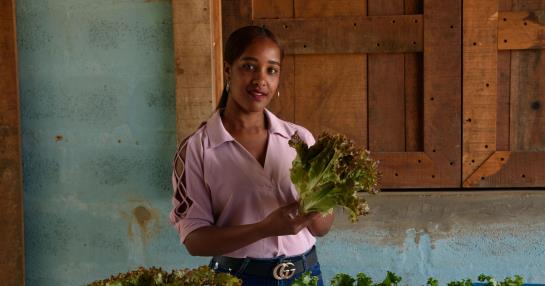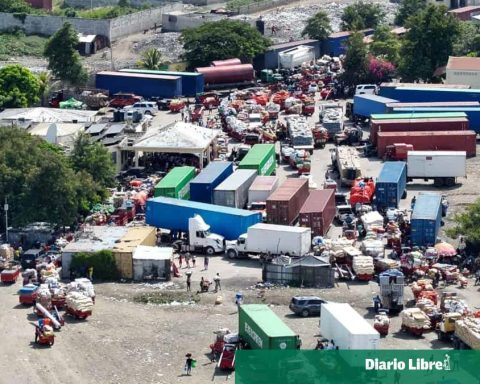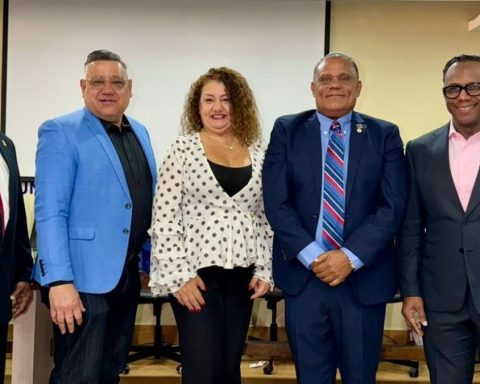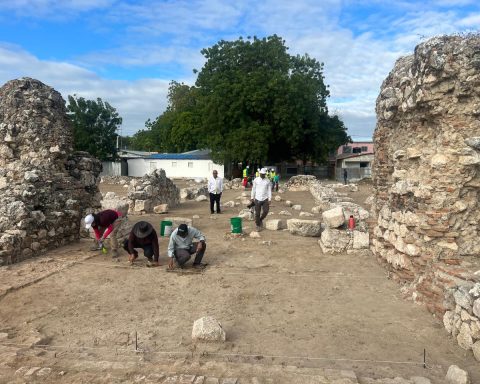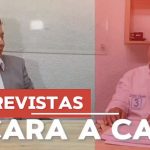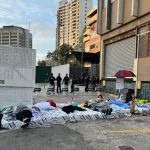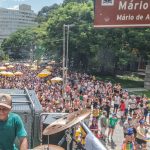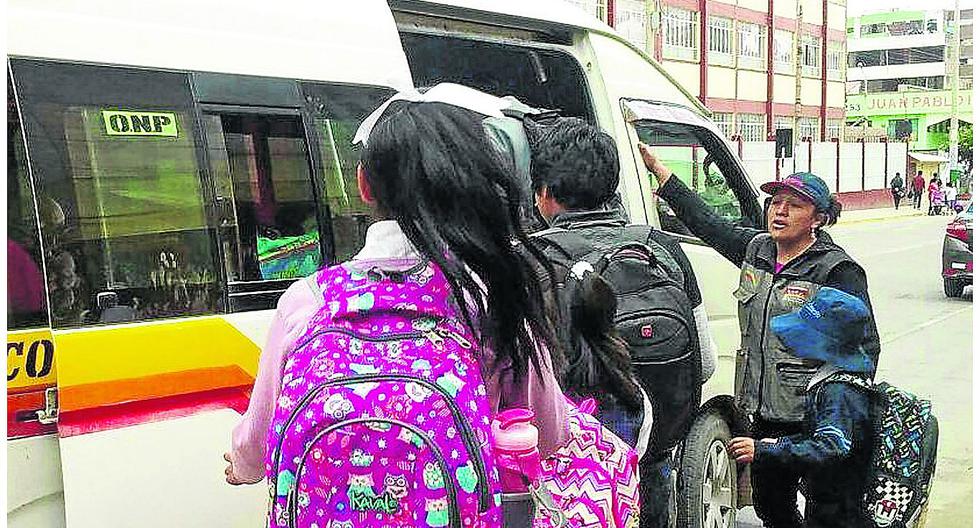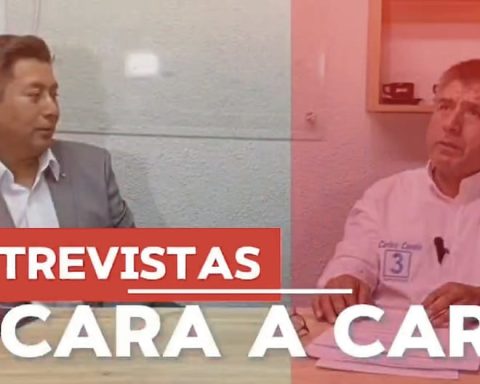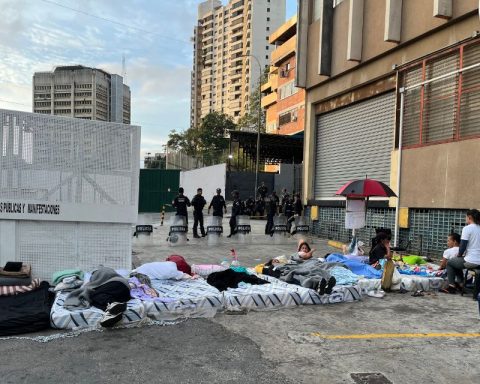After believing that everything had collapsed, life has begun to change for the agricultural producers from Poppy’s Villain Constance, citizens who in 2018 the Ministry of Environment evicted with their families from New Valley National Park. The current government has granted them the registry of State suppliers, with which they will be able to sell their products to public institutions.
“The vision is that public procurement is for development,” said Carlos Pimentel, general director of Public Procurement and Contracting (Dgccp) upon formalizing the registration. “Public contracting is useful when we promote it from a public policy perspective to guarantee rights, to improve people’s lives.”
He said that, since it is clear and convinced that those who produce have to sell, and that the largest buyer is the Dominican State, it was necessary to bring the family agriculture through the cooperative to the public market.
On February 4, the farmers and families of Poppy’s Villa They gathered to witness the first certification of the State Supplier Registry that issued Purchases and Contracts to a cooperative of family agriculture.
The process was carried out with the support of the Food and Agriculture Organization of the United Nations (FAO), and the articulation of several State institutions, such as Supérate, the Dgccp itself, Environment and the Institute for Development and Cooperative Credit (Idecoop).
“At the time the resolution (to evict Valle Nuevo) was thrown out, we peasants thought that the world was going to end. Many of us wished for death.”President of the Cooperative of Production, Works and Multiple Services of Villa Poppy
“After we fell here, the first year was very bad for us; the second year, more or less, because the government authorities promised us that they were going to follow up on us, they were going to give us aid, and those from that government never did,” said Miguel Ángel Rosario, president of the Production Cooperative , Works and Multiple Services of Poppy’s Villa.
“This government has fallen,” he added. We made these links once and for all, with some authorities who came to power. We have not become millionaires, but life is changing.

A challenge with obstacles
In Poppy’s Villa Almost 140 tasks are available. 60% is planted with onions and 40% with cabbage, carrots and three or four varieties of lettuce, among other vegetables.
The farmers understand that after starting businesses with the State and with private companies directly, the 55 families that live in Poppy’s Villa they can subsist with what is produced on the land they own.
“We already have good business, because we are selling to several companies directly. We hope that from today (Friday) forward, that we are going to be suppliers to the State, onions can also have a good business,” Rosario said.
However, they have as an obstacle the rises in the prices of the inputs they use, which have more than doubled. “The subscription is 3,000 pesos. Before we bought it for less than 1,000”, calculated Carlos Manuel Tiburcio, producer.
In addition, he explained that among the supplies are the Triple 15, which costs almost RD$3,000; sulfate is almost RD$2,000 and before it cost RD$800, and a bag of urea is close to RD$5,000. “Farmers are broke because of the inputs, they are too expensive,” she said.

high expectations
Rodrigo Castañeda, representative of the FAO in the Dominican Republic, said that this organization has been accompanying the process of Poppy’s Villa since its inception, trying to provide technical advice to farmers, encouraging and supporting the formation of a cooperative.
“Today, they are no longer just farmers and become an agricultural organization. They organize their production and can reach the market directly, and that improves their prices and their income”, he indicated.
Gloria Reyes, executive director of Supérate, said that the project they are developing in Poppy’s Villa it is a model of the social protection programs that the government is targeting, so that it can be a reference at the national level, especially in rural areas.
“The idea is to set up a family farming laboratory here that would allow us to demonstrate that this type of intervention in an articulated manner would allow us to help families generate income, and that this income would allow economic inclusion, development and well-being in their families to shorten their permanence in social programs”Executive Director of Overcome
Arturo Bisono, director of family agriculture Supérate, explained that the community of Poppy’s Villaat the time of intervening a year and a half ago, it was disjointed, but currently they already have a new irrigation system and a weather station, and have validated, through technology, the varieties of premium vegetables that they can plant.
“They already have a national market and they already have an export perspective. They are already receiving financing for the production of strawberries and for a refrigerated truck,” Bisonó explained.
“They already have their cooperative constituted -he added-, they are already marketing to five main buyers, such as a fast food chain, the PriceSmart supermarket, Super Fresh, different restaurants in the Dominican Republic, and now the big door is opening to market to the Dominican state market, which is the largest buyer,” he said.

Concerns of farmers in Poppy’s Villa
Free Journal spoke with Luciano Tejeda, one of the producers who was displaced from the New Valley National Parkwho explained that they are currently living more comfortably, but with less production, because the land is smaller.
“There (in Valle Nuevo) we are more uncomfortable, but we produced more,” he said.
In Poppy’s Villa they are producing onions, carrots, lettuce, garlic and celery, among other vegetables, and they sell according to the orders they receive.
“The improvement for us would be to follow up on the project. Here, with others who have been added, we are like 38 farmers,” said the producer.
In Luciano’s house there are nine people, eight of whom depend on what he produces. “I produce every three or four months, for example, 250,000 or 300,000 pesos,” he estimated.
Instead, producer Carlos Manuel Tiburcio explained that profits depend of the conditions and quality of the harvest; if it is good, they can have better profit.
“If the market collapsed, the harvest also collapsed, because sometimes imports come, and what is planted is sold for the ground,” he denounced.
In the case of onions, he assured that a lot of money is spent on the production of this item, a situation that affects them, because the inputs are expensive.
“Farmers are broke because of the inputs, they are too expensive”Farm Producer Villa Poppy
Ramón Antonio Díaz Sánchez, producer and member of the cooperative of Poppy’s Villa. He specified that what is killing producers are imports.
“Right now I am going to buy a sack of fertilizer and it is through the roof. If the fertilizer is expensive, the poisons are expensive, and if what I’m going to sell is expensive, I don’t give a damn about that, but if it’s cheap, I’m going to fall to the ground. We are losing, we are losing everything. If the harvest is good, we are losing it, because what you are investing in it, you are losing, almost half”, he explained.
The production that the farmers have is not covering the costs of the inputs that, according to them, have doubled their prices.
